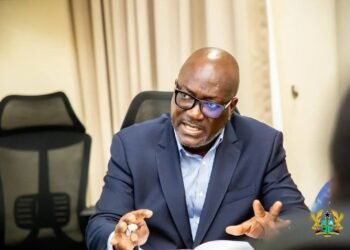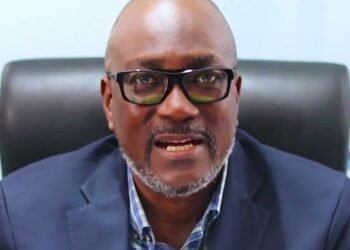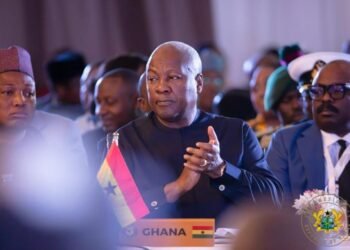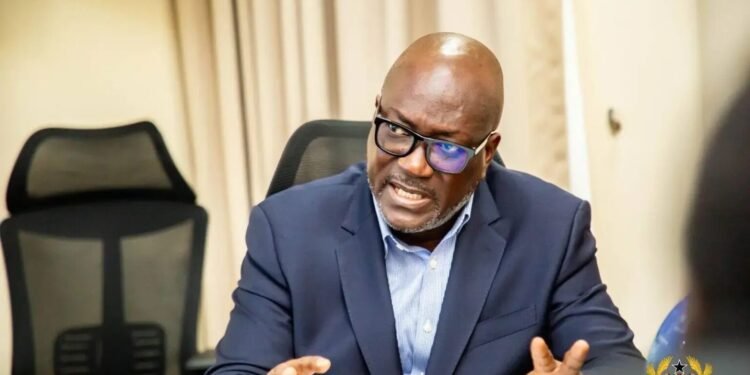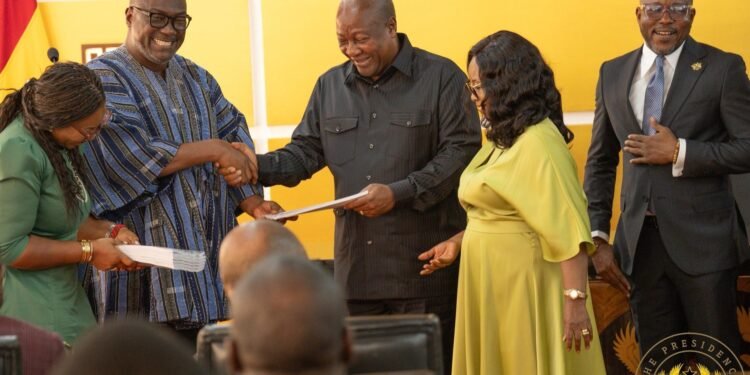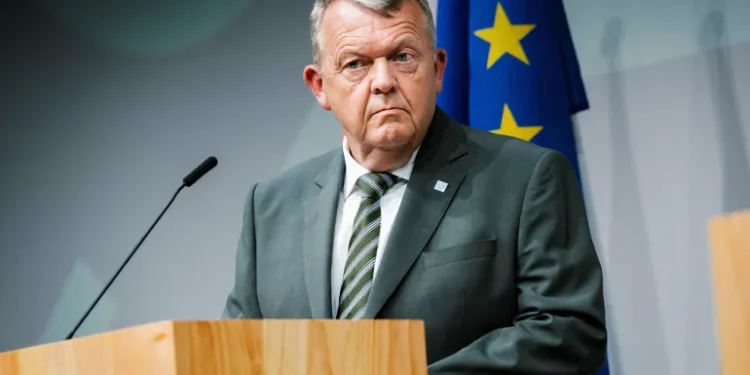The Ghana Registered Nurses and Midwives Association (GRNMA) strike is expected to be resolved soon after a four-hour high-stakes meeting between the Parliament Select Committee on Health and important stakeholders.
Through the parliamentary committee’s mediation, the GRNMA’s leadership, as well as representatives from the Ministry of Finance, the Ministry of Health, and the Fair Wages and Salaries Commission, convened for the intense discussions.
The discussions were marked by a spirit of mutual understanding and a commitment to finding common ground, even though a final end to the strike is still subject to internal GRNMA processes.
The Chair of the Parliament Select Committee on Health, Hon. Nawaane Kurt Mark, emerged from the lengthy session expressing satisfaction with the constructive nature of the discussions.
He extended gratitude to all parties for honouring the invitation and for their active participation in what he described as “very fruitful negotiations.”
“We’ve had very fruitful negotiations. We’ve tried to understand each other. We have tried as much as possible to synchronise our activities, and now what we can say at this moment is that the discussions were fruitful.”
Chair of the Parliament Select Committee on Health, Hon. Nawaane Kurt Mark
The sheer duration of the meeting underscored the complexity of the issues at hand, as well as the determination of all involved to exhaust every avenue for dialogue.
Hon. Mark clarified that the nurses’ and midwives’ leadership is now required to report back to their council for deliberation and endorsement before any official announcement can be made regarding the strike’s status.
This adherence to internal governance structures is a standard and necessary step for professional associations, ensuring that decisions of such magnitude are collectively owned and sanctioned by their governing bodies.
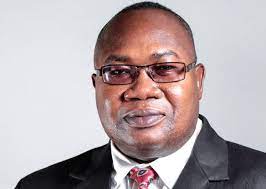
Hon. Mark appealed for public patience, acknowledging the widespread anticipation for definitive news but stressing the importance of allowing the GRNMA to follow due process.
He emphasized that this period of internal consultation is crucial for the association to evaluate the proposals put forth during the mediation and to forge a unified path forward.
Minister’s Assurance
Complementing the Committee Chair’s measured optimism, the Minister of Health, Hon. Kwabena Mintah Akandoh, offered a reassuring message, portraying his ministry as a “mother ministry” to the nation’s nurses and midwives.
This maternal metaphor underscored a commitment to nurturing and supporting the healthcare workforce, rather than viewing them merely as employees.
“Let me assure you that out of the fruitful deliberations we had this morning, once the strike is called off, We are committed in engaging our nurses and midwives to arrive at mutually acceptable conditions.”
Minister of Health, Hon. Kwabena Mintah Akandoh
This statement is a significant olive branch, indicating the government’s willingness to continue negotiations on improved working conditions and remuneration, provided the essential healthcare services are restored.

The emphasis on “mutually acceptable conditions” suggests a recognition of the legitimate concerns raised by the GRNMA, paving the way for a partnership based on dialogue and compromise.
The strike by the Ghana Registered Nurses and Midwives Association has, without doubt, placed significant strain on Ghana’s healthcare delivery system, affecting patients and creating a challenging environment for the remaining healthcare professionals.
Nurses and midwives form the backbone of the nation’s health infrastructure, providing essential services from primary care in rural communities to specialized interventions in major hospitals.
Their welfare, working conditions, and compensation are not merely industrial matters but directly impact the quality and accessibility of healthcare for all Ghanaians.
The parliamentary committee’s swift intervention highlights the critical importance of their role and the urgent need to restore full functionality to the health sector.

The involvement of the Ministry of Finance and the Fair Wages and Salaries Commission further underscores the multifaceted nature of the issues, which encompass both human resource management and national economic considerations.
The collaborative spirit displayed in the parliamentary meeting, despite the initial impasse, offers a template for resolving future industrial disputes in essential services.
There is a collective hope that the path forged in Parliament will swiftly lead to the cessation of the strike and the full resumption of healthcare services.
READ ALSO: Mahama Charts Ghana’s Vision to Lead Africa’s Agricultural Transformation




